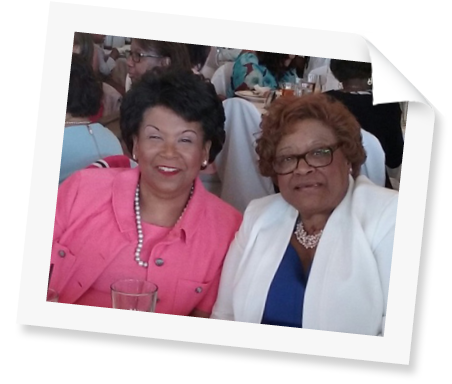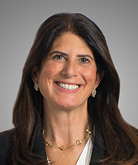My marriage must-have: ‘Separate accounts — or I manage the money’
My mom taught me the importance of financial independence, so when my husband proposed, I made that a condition of our financial future
By Yvette McGee Brown
MY HUSBAND, TONY, AND I MET 32 YEARS AGO and got married several months later. We had talked a little about money when we were dating, but when he proposed, I couldn’t help but think of a piece of financial advice my mother drummed into me, growing up. “You cannot be dependent on a man,” she always told me. “You have to have your own bank account. You have to be able to take care of yourself.”
“My mother always told me, ‘You cannot be dependent on a man. You have to be able to take care of yourself.’”
When I accepted Tony’s proposal, that memory inspired me to include a loving but firm requirement about the way we would handle our finances. I gave him two options: We could have separate bank accounts, or he could let me manage our money.
Some men might have walked away at that moment, but Tony has always been comfortable in his own skin. He was a teacher, and I had just been elected to be a judge on the Franklin County Court of Common Pleas, Domestic Relations and Juvenile Division, in Ohio. He knew that I was going to be the primary breadwinner in our family, so he said, “That’s fine with me.”
To this day, I manage the money. I pay the bills. If something were to happen to me, I have a trust set up, and the trust advisor will work with Tony to direct where the dollars should go.
Two generations of strong women inspired me
I can trace my desire to be in control of my finances to the examples set by the strong women in my life. My grandmother was born in Macon, Georgia, in 1908 on a sharecropper plantation. When she was 17, she moved to Columbus, Ohio, to be a domestic worker. She always pushed me to do well in school, saying, “It doesn’t matter where you start in life. It matters where you finish.” College and law school would be my path.
One of my proudest achievements has been having the financial resources to spoil my mom. She is now the ‘fancy lady’ at church.
My mother was a teenager when I was born. She had two sons after me and worked in a factory to support us all, standing on her feet eight hours a day. At night, she cleaned bathrooms. I often say my worst day on the job is better than her best days. She was a great mom, and we always had what we needed.
Over the years, I’ve turned to my Merrill Private Wealth Advisor, Audrey Tuckerman, to help me manage my money. And the financial independence that my grandmother and mother longed for me to have has allowed both Tony and me to have experiences I never dreamed of when I was growing up in inner-city Columbus.
Sharing my blessings — and spoiling my mom
I love to travel, and Tony and I do that whenever we can. It was also very important to us that we put our children through college. It took us 12 years to pay off our student loans, so we’re very proud that all three of our children were able to start their professional lives without the burden of student debt.
My message to other women: You’ve got to be the captain of your own ship.
Philanthropy is another big priority. I was raised in the church, and I believe you’ve got to pay it forward and be willing to share when you've been blessed. I’ve been able to give to causes I believe in, as well as establish a scholarship at the Ohio State University Moritz College of Law for law students from diverse backgrounds.
But one of my proudest achievements has been having the financial resources to spoil my mom. About 15 years ago, we were able to move her from my childhood home into a gated community. We bought her a bed with heating and massage features, and for her 80th birthday, we gave her a brand-new luxury car. She is now the “fancy lady” at church.
All those years ago, my mom wanted me to be able to take care of myself and have my own money. I’ve done that and more, and my message to other women now is that you’ve got to be the captain of your own ship. You’ve got to write your own story, and you can’t leave your financial security to anyone else.
In 2011, Yvette McGee Brown became the first African American woman to serve as a justice on the Ohio Supreme Court. Today she is the partner in charge of Diversity, Inclusion & Advancement for the global law firm Jones Day.
Tap + for tips
A private wealth advisor can help you get started.
IMPORTANT DISCLOSURES
Yvette McGee Brown is not affiliated with Merrill or any of its affiliates. This article is for information and educational purposes only. Her opinions and views do not necessarily reflect those of Merrill or any of its affiliates and are subject to change without notice. This material does not take into account your particular investment objectives, financial situations or needs and is not intended as a recommendation, offer or solicitation for the purchase or sale of any security, financial instrument, or strategy. Before acting on any recommendation in this material, you should consider whether it is in your best interest based on your particular circumstances and, if necessary, seek professional advice.
Merrill, its affiliates, and financial advisors do not provide legal, tax, or accounting advice. You should consult your legal and/or tax advisors before making any financial decision.


 “Whether you choose separate accounts or not, both of you should be involved in key investing and financial decisions.”
“Whether you choose separate accounts or not, both of you should be involved in key investing and financial decisions.”